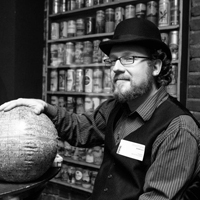Gravity is the OG of the forces of Nature. Historically it was the first to be discovered and described scientifically, yet it’s the most challenging to study. Even though gravity governs the orbits of planets and the structure of the universe, it’s by far the weakest of the four fundamental forces, making it the hardest to isolate for experiments.

For that reason, only a few specialized labs around the world are sensitive enough to measure gravity precisely. Some researchers even think we may be nearing the limits of what we can do on Earth’s surface, where any number of things can interfere. Small earthquakes, settling buildings, even tiny shifts in Earth’s gravitational field can add small amounts of uncertainty. The solution, of course, is to go into space, but naturally that has its own challenges. Not least of those worries: Even small space-based experiments are much more expensive than Earth-bound counterparts.
As with any theory, researchers are interested in seeing whether the predictions of gravity as established by Albert Einstein hold true in all domains. That means seeing if gravity behaves the same way for the largest galaxy clusters down to the smallest particles. We are pretty sure gravity works as expected for the biggest objects (though dark energy—the mysterious stuff making the universe accelerate—may be a sign we need new ideas).
Small objects are a different story. Consider your hand (duuude): It’s more or less electrically neutral, with roughly equal numbers of positive and negative electric charges. But if you pick up a coffee cup, you bring the atoms in your hand and those in the cup close together, so that the electrons in each can influence each other. The electromagnetic force between the electrons lets you pick up the cup, counteracting gravity in the process.
That means any experiment must account for the electromagnetic force as well, to make sure it doesn’t create false results by overwhelming the gravitational effects. (For microscopic particles, the other two fundamental forces—creatively named the “weak” and “strong” forces—might play a role too.) As a result, sensitive gravitational measurements require isolation from any vibrations and careful fabrication of components.
In one interesting experiment, reported in the prominent journal Physical Review Letters last week, researchers produced beams of different types of atoms (potassium and rubidium) to see if they fell at different rates in gravity. That’s a test of the “equivalence principle,” which in essence states that the way an object falls doesn’t depend on its size, shape, or chemical composition (without air, at least).
The experiment found that the type of atom made no difference to the outcome, perfectly in line with the equivalence principle. While this type of test isn’t as accurate yet as other equivalence principle experiments, it’s potentially more powerful because it can test specifically microscopic properties of matter, like the way the spin of an atom reacts in gravity.
The equivalence principle is more than just a statement about atomic makeup, though. It’s about a fundamental equivalence between two types of mass: inertial and gravitational mass. Inertial mass is the amount of matter in an object, the measure of the resistance an object has when a force pushes it. Gravitational mass determines the strength of the force of gravity exerted by the object, like the amount of electric charge dictates the strength of the electrical force. Even though these two types of mass don’t look to be the same, the equivalence principle says they are identical, all the way from microscopic particles up to galaxy clusters. That’s testable, though hard to do! If the equivalence between inertial and gravitational mass wasn’t true, then different types of objects would fall differently, with potentially profound results.
So far, the equivalence principle has passed every experimental test, and in fact both Isaac Newton’s theory of gravity and Einstein’s general theory of relativity have it built in. But it might break down in regimes we have trouble testing, and some speculative theories have proposed something like that. After all, general relativity was a refinement of Newton’s gravity to account for some anomalies; we may in turn need a refinement of general relativity, especially as we get into the quantum regime.
And if we really want to test falling, it’s hard to beat going into space. The upcoming MICROSCOPE (a rather um...elaborate acronym standing for MICRO-Satellite à traînée Compensée pour Observation du Principe d’Equivalence) is a French project designed to minimize all effects that might interfere with equivalence principle testing. This mission, slated to launch later this year, is based on a standard small satellite design, with a small precisely-fabricated cylinder inside.
That cylinder is in a chamber within the satellite, not unlike an astronaut aboard the International Space Station. Both the cylinder and the satellite will orbit Earth, their paths dictated purely by gravity, but the cylinder’s position and acceleration will be monitored by a set of sensors. Because all other forces are controlled or eliminated, MICROSCOPE should be able to measure the equivalence principle with at least 100 times greater accuracy than current Earth-based experiments.
The story never ends: Scientists are tinkerers, pushing the limits of our theories farther to see if they break. But if these experiments don’t find a deviation from the equivalence principle, that’s important too: It tells us that the principle may be a fundamental property of nature, and any theory of gravity had better be consistent with it…or else.






